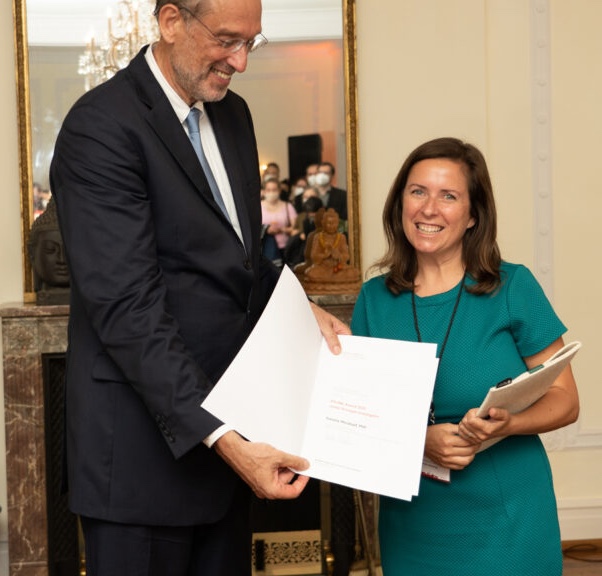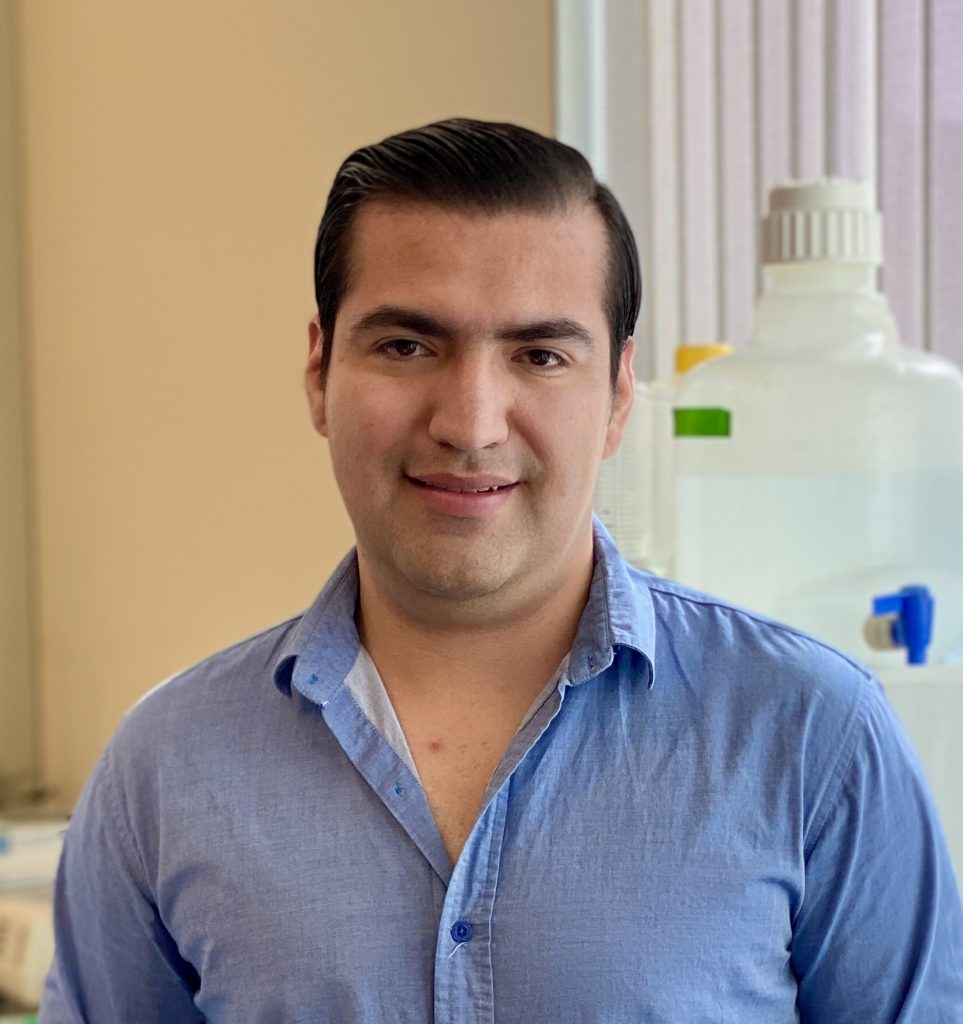Daniela Weiskopf, Ph.D., has devoted her career to understanding how humans and viruses interact. Her research into this hidden world has shed light on how the immune system responds to diseases such as dengue, Zika and COVID-19.
This month, Weiskopf, a Research Assistant Professor at La Jolla Institute for Immunology (LJI), was awarded the 2021 Junior Principal Investigator Award from the organization Austrian Scientists & Scholars in North America (ASciNA). The award was presented to Weiskopf Sept. 18 by Heinz Faßmann, the Austrian Minister of Education, Science and Research.
Weiskopf won the honor due to her leadership on a truly groundbreaking 2020 Science paper, titled “Selective and cross-reactive SARS-CoV-2 T cell epitopes in unexposed humans.” This key study, co-led by LJI Professors Shane Crotty, Ph.D., and Alessandro Sette, Dr.Bio.Sci., revealed the possibility that prior exposure to common cold coronaviruses may prepare T cells to respond to SARS-CoV-2 as well.
LJI Communications recently chatted with Weiskopf to learn about her COVID-19 breakthroughs—and how she first started solving immune system mysteries.
Question: Congratulations on winning the ASciNA award! How does it feel to receive this honor?
Daniela Weiskopf: I’m very, very excited—for two reasons! First, because they recognized great science, but also because it’s recognition from my home country.
Q: Where are you from in Austria?

Weiskopf: I’m from a small town outside of Innsbruck. So all my college was done in Innsbruck at the University of Innsbruck and then grad school at Innsbruck Medical University.
Q: Were you interested in science growing up?
Weiskopf: In high school, I really started liking chemistry and biology classes. My chemistry teacher said I should study microbiology, since it combines both those subjects. Nobody in my family had ever gone to college before, but I signed up to study microbiology. I then fell in love with viruses, not necessarily the virus side, but how the immune system recognizes viruses. And that’s what I’ve been studying ever since.
Q: Can you share when and how you started studying how T cells respond to SARS-CoV-2?
Weiskopf: This research started very early in the pandemic. We started studying T cell responses against COVID, and we noticed that we saw responses against SARS-CoV-2 in about half of our control group. This was impossible, because we’d collected those blood samples years and years before the virus even existed. So we knew the T cells had never seen the virus.
So the question came up of how were these T cells recognizing the T virus. What was priming these cells if it wasn’t SARS-CoV-2?
That’s when we started looking for what was responsible. We figured out it was common cold coronaviruses. They are very similar to SARS-CoV-2—I always say they are like the “cousins” of SARS-CoV-2. Certain epitopes [targets on these viruses] have close enough sequence homology that T cells can actually cross-recognize them and SARS-CoV-2.
That was a very important finding almost a year ago. What we didn’t know at the time was whether these “cross-reactive” T cells made a difference. Did people with these T cells have an advantage if they were infected or got a vaccine?
Q: What have you figured out since then?
Weiskopf: Those findings were actually in a Science paper out this month. It’s almost perfect timing, isn’t it?
Q: Like bookends!
Weiskopf: Yes! We found that these T cells actually make a difference. People who get vaccinated and have this pre-existing immunity, or cross-reactive immunity, have a faster response to the Moderna vaccine. They make more CD4+ T cells and they have a higher antibody response. Seven months after vaccination, they still have higher neutralizing antibody titers than people who don’t have these T cells.
Q: So what’s next in your lab?
Now that we know prior immunity makes a difference for people with the Moderna vaccine, we need to study whether that’s true for the other COVID-19 vaccines as well. Right now, we are looking to answer this question for the vaccines authorized in the United States.
Q: Can’t wait to talk to you about that research when it comes out!
Weiskopf: It’s kind of nice how science is all linked. You publish one study and then a new question comes out of it. It always opens more questions, but that’s science.





